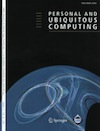Resistance is futile and the design of politics
“Resistance is Futileâ€: Reading Science Fiction Alongside Ubiquitous Computing
Personal and Ubiquitous Computing
Paul Dourish, Department of Informatics, University of California
Genevieve Bell, Director of the User Experience Group, Intel Corporation
“Design-oriented research is an act of collective imagining – a way in which we work together to bring about a future that lies slightly out of our grasp. In this paper, we examine the collective imagining of ubiquitous computing by bringing it into alignment with a related phenomenon, science fiction, in particular as imagined by a series of shows that form part of the cultural backdrop for many members of the research community. A comparative reading of these fictional narratives highlights a series of themes that are also implicit in the research literature. We argue both that these themes are important considerations in the shaping of technological design, and that an attention to the tropes of popular culture holds methodological value for ubiquitous computing.”
HCI and Environmental Sustainability: The Politics of Design and the Design of Politics
DIS 2010
Paul Dourish, Department of Informatics, University of California, Irvine
“Many HCI researchers have recently begun to examine the opportunities to use ICTs to promote environmental sustainability and ecological consciousness on the part of technology users. This paper examines the way that traditional HCI discourse obscures political and cultural contexts of environmental practice that must be part of an effective solution. Research on ecological politics and the political economy of environmentalism highlight some missing elements in contemporary HCI analysis, and suggest some new directions for the relationship between sustainability and HCI. In particular, I propose that questions of scale – the scales of action and the scales of effects – might provide a useful new entry point for design practice.”




